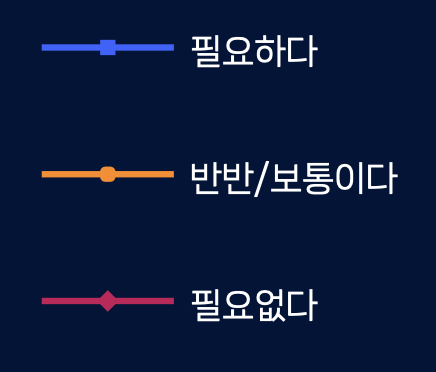[93rd Unification Studies Forum] Drone and Future War
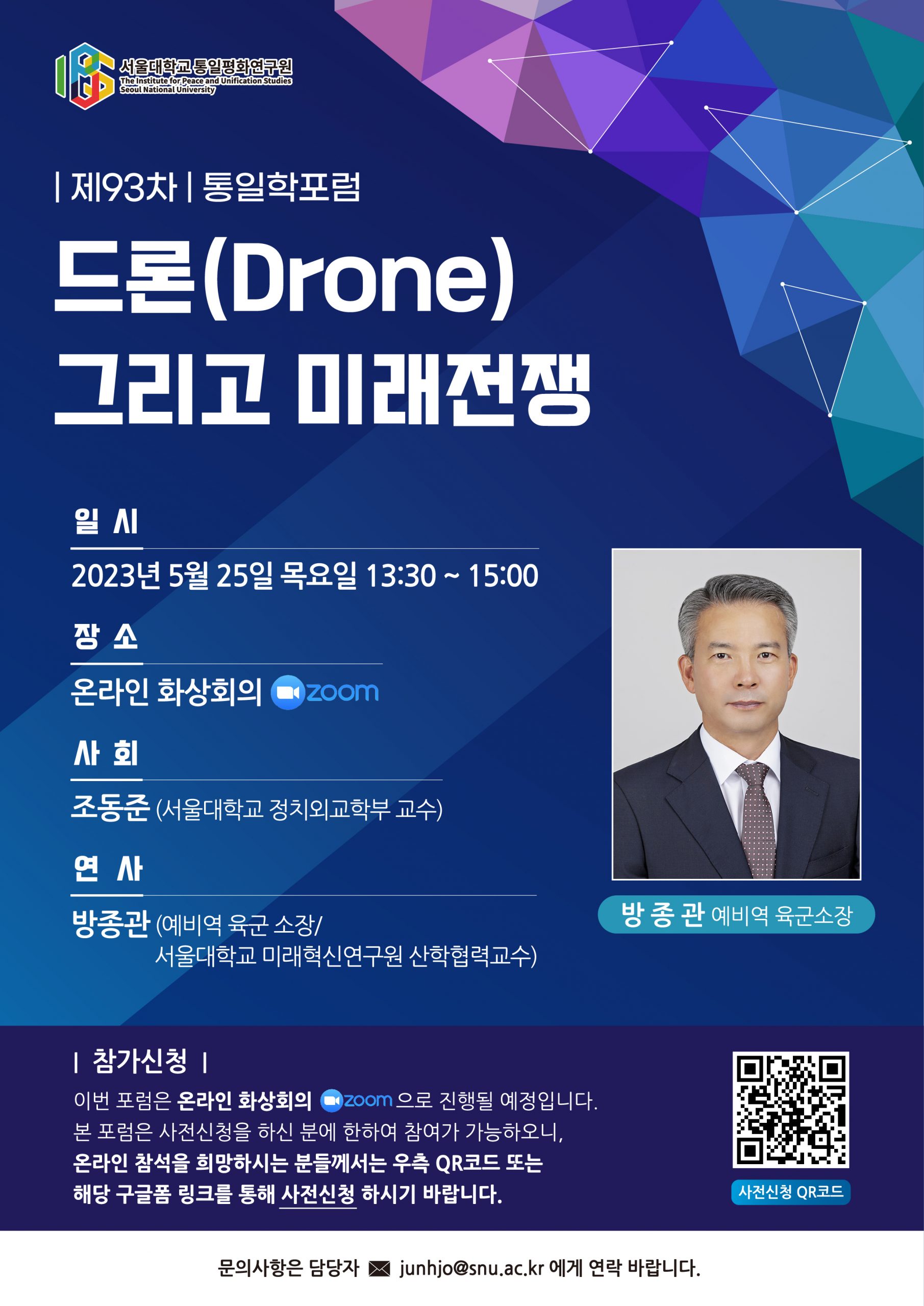
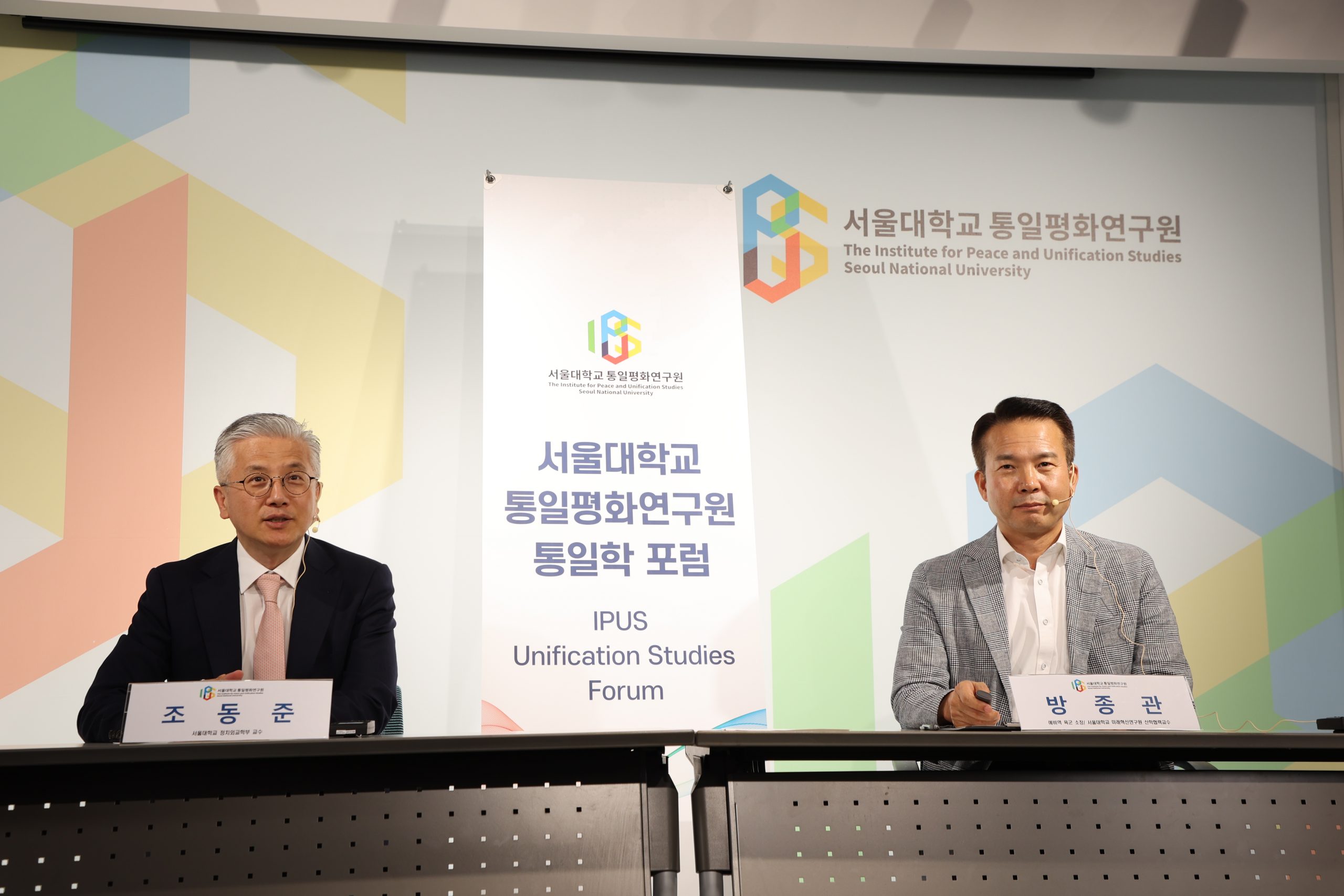
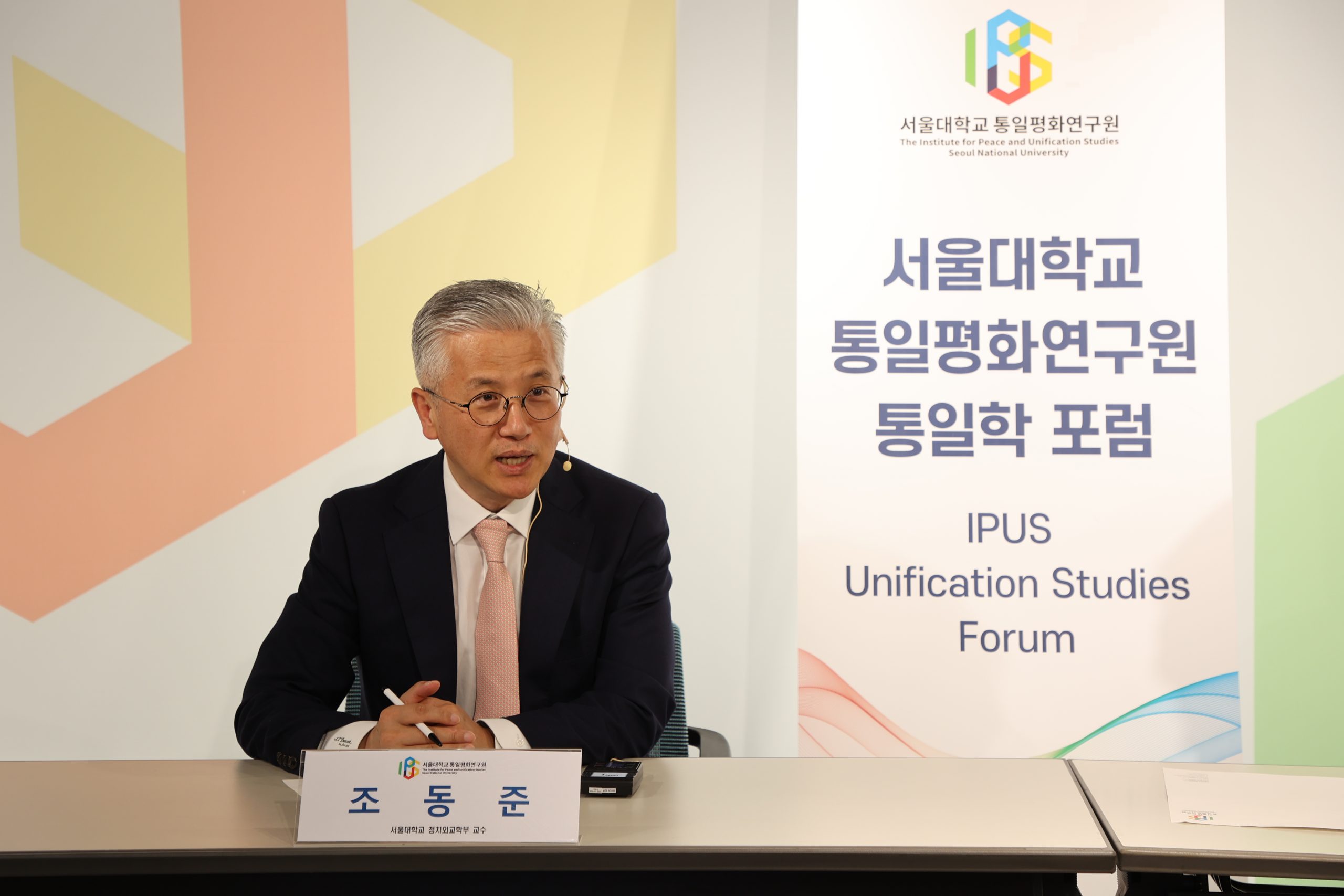
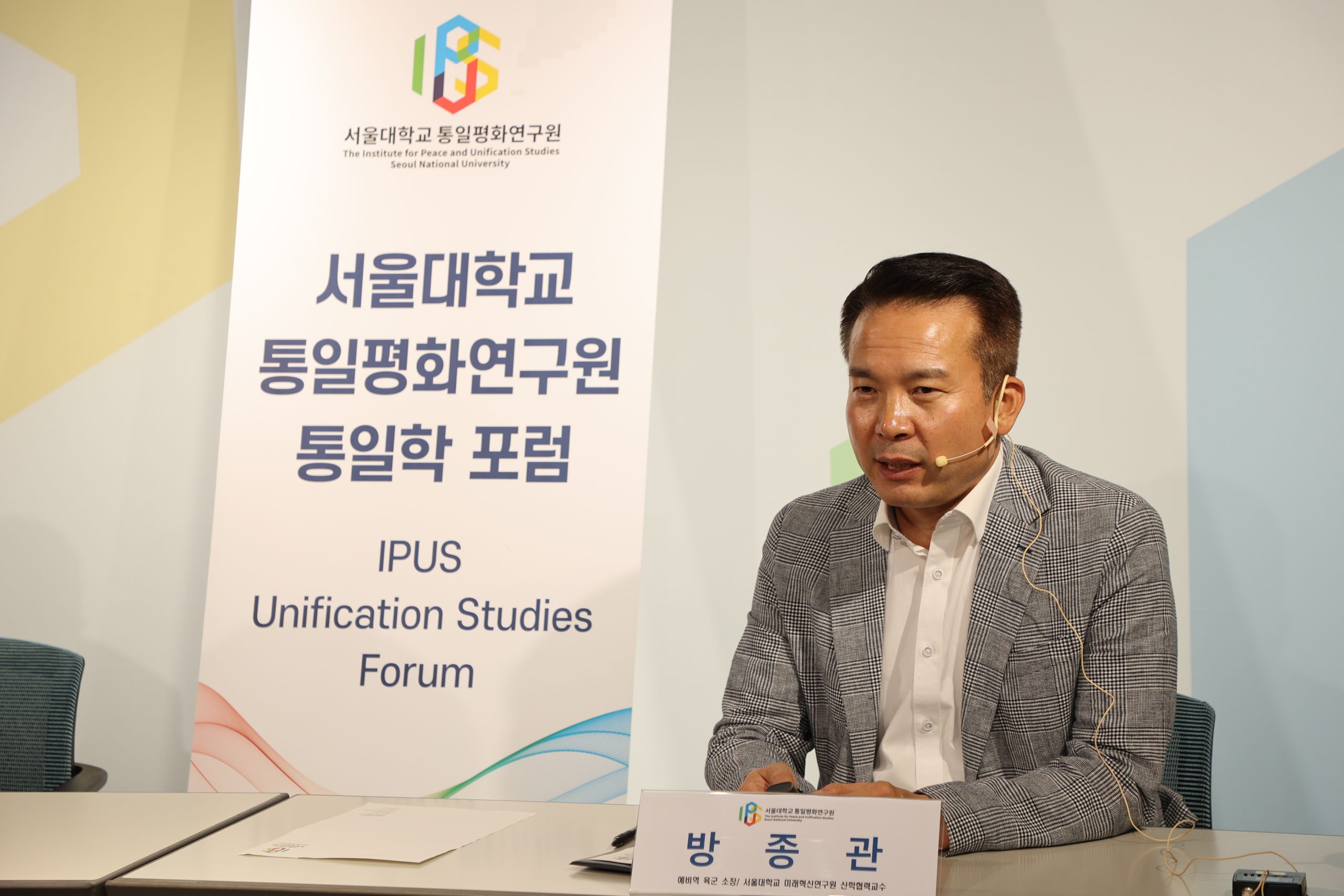
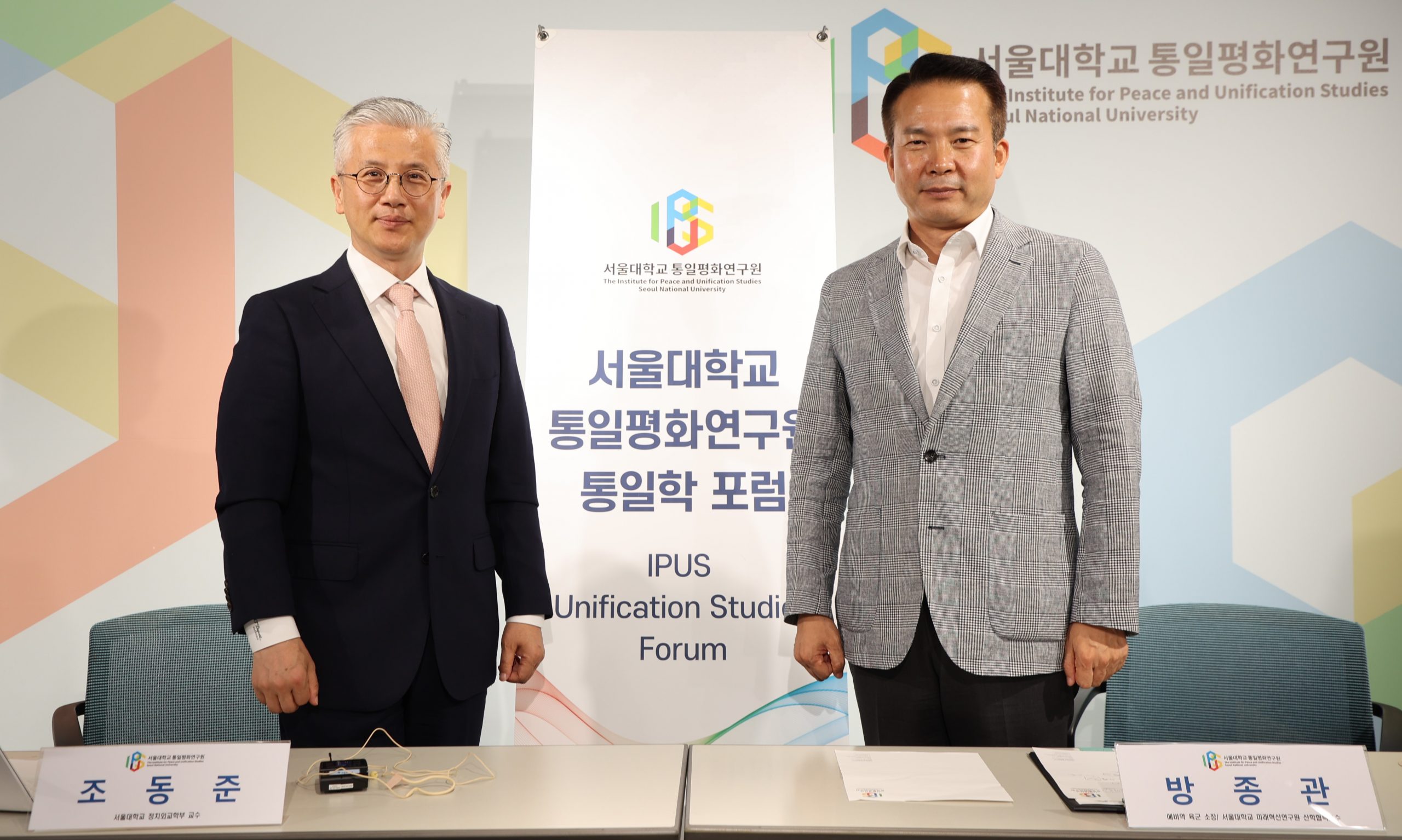
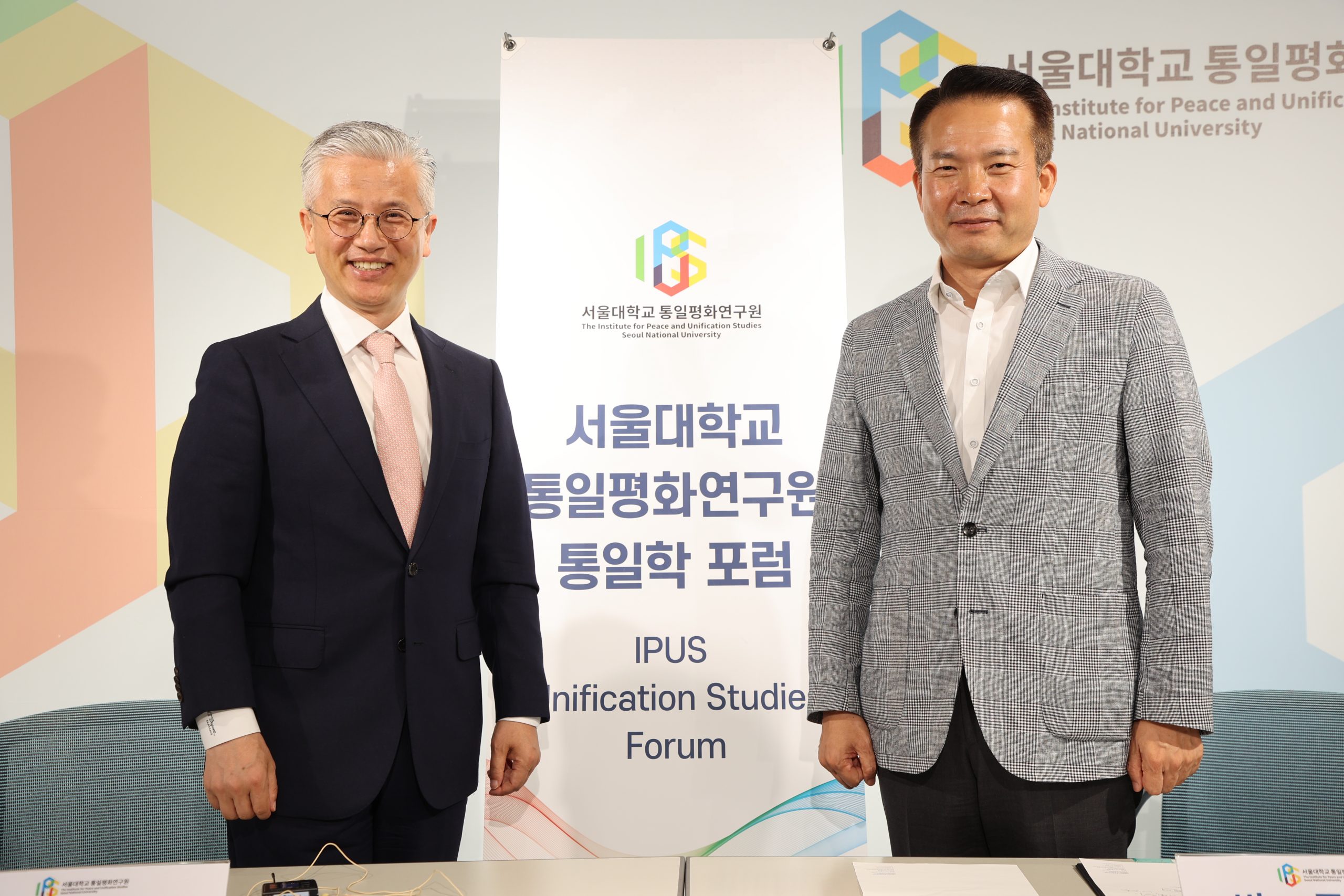
- Date&Time: May 25th (Thu) 13:30 –15:00 (KST)
- Venue: Online video conference (ZOOM)
- Host: Jo, Dong-jun (Professor, Department of Political Science and International Relations, Seoul National University)
- Speaker: Bang, Jong-goan (Reserve Major General, Army / Industry-Academia Cooperation Professor, Future Innovation Institute at Seoul National University)
- Topic: Drones and Future Warfare
The Institute for Unification and Peace Studies at Seoul National University(IPUS at SNU) held the 93rd Unification Studies Forum on Thursday, May 25, 2023, with Bang Jong-goan, a Reserve Major General in the Army, as the guest speaker. The “Unification Studies Forum” is an expanded and revamped version of the “Unification Policy Forum,” which was held 75 times from 2006 to 2020, and is currently hosting its 93rd session. In this forum, Professor Jo Dong-jun from the Department of Political Science and International Relations at Seoul National University served as the host and delivered the opening remarks.
Firstly, Reserve Major General Bang Jong-goan explained the origins and development of drones, emphasizing that “since the 1960s, drones have been used for reconnaissance purposes, and starting from the 1990s, they began to be used for self-destructive and armed purposes, expanding their scope of application.”
Furthermore, Reserve Major General Bang Jong-goan explained the use of Russian drones in the Ukraine war, pointing out that “they demonstrated capabilities that fell short of expectations.” He attributed the reasons to Russia’s delayed recognition of global trends following the Georgia war in 2008, which led them to start developing drones, and due to Western sanctions since 2014, they had to import drones from Iran. On the other hand, Ukraine “currently operates self-destructive drones with the support of the United States,” and Türkiye “started drone development relatively late but has shown the fastest progress by independently operating drone engines.”
Meanwhile, Reserve Major General Bang Jong-goan stated that “despite importing drones in the 1990s and relatively quickly embarking on unmanned aircraft development, South Korea still cannot operate drone systems in the form of unmanned combat aircraft and lacks self-sufficiency in drone engines.” He cited “the absence of a comprehensive development roadmap, insufficient timely acquisition of core technologies, and complex and rigid business procedures” as the reasons. On the other hand, he described North Korea’s level of drone development as “overall, significantly lagging behind” and mentioned that “while there may be psychological significance, they have not yet demonstrated significant value in tactical and strategic dimensions.”
Lastly, Reserve Major General Bang Jong-goan linked Revolution in Military Affairs (RMA) to the Future of Warfare. He emphasized that “considering the high military expenditure of the United States, it is inevitable that the U.S. style of warfare would differ from other countries.” He also mentioned that “there is a possibility of coexistence between conventional and information warfare, and the ammunition consumption in modern warfare is likely to exceed expectations.” Regarding the role of drones in the future nature of warfare, Reserve Major General Bang Jong-goan predicted that “drones have become a universal weapon system rather than just game-changers” and “that the use of commercial components in small drones will expand.” He also speculated that “with advancements in AI technology, the operational range of drones will further expand, resulting in performance disparities between less developed countries and advanced military powers.” He raised the possibility that “drones will gradually contribute to the improvement of piloted aircraft capabilities and eventually replace them.” In the context of the Korean Peninsula’s operational environment, he emphasized “the usefulness of small self-destructive drones.” Finally, Reserve Major General Bang Jong-goan concluded the forum with the phrase “War triggers RMA and validates its effectiveness.”
















